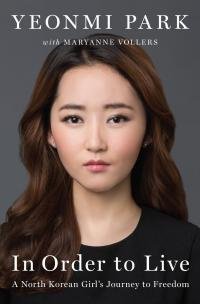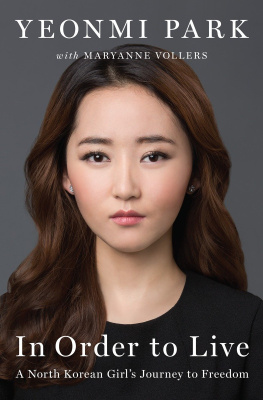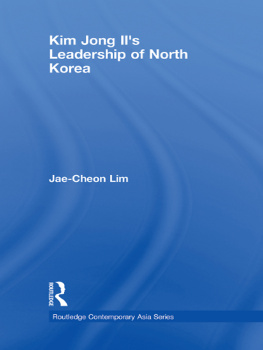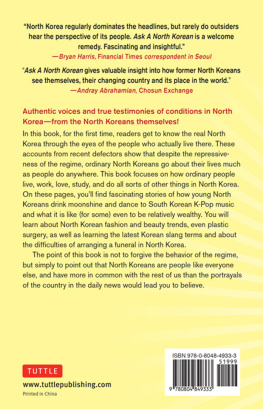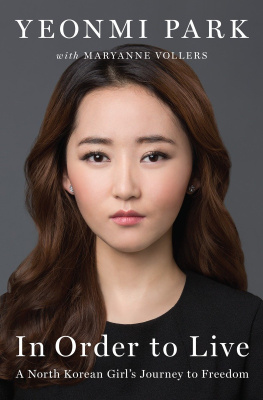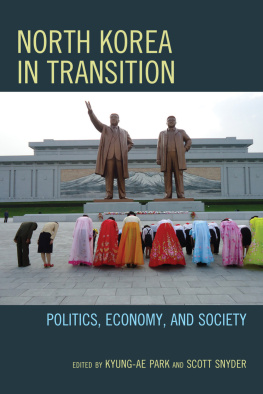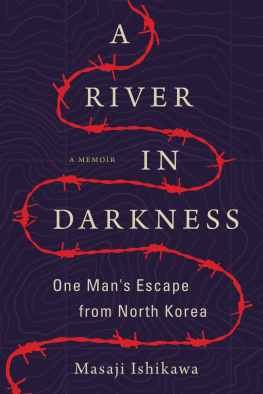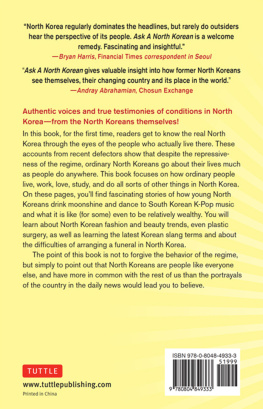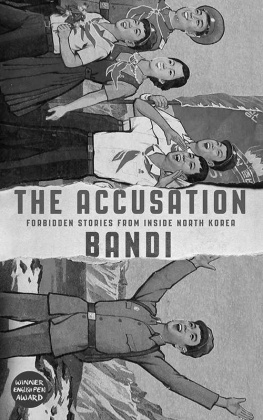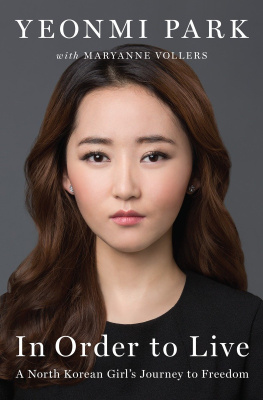For my family,
and for anyone, anywhere, struggling for freedom
We tell ourselves stories in order to live.
Joan Didion
Visit http://bit.ly/1KfF28h for a larger version of this map.
Contents
Title Page
Copyright
Dedication
Epigraph
Map
Prologue
PART ONE
North Korea
One Even the Birds and Mice Can Hear You Whisper
Two A Dangerous History
Three Swallows and Magpies
Four Tears of Blood
Five The Dear Leader
Six City of Dreams
Seven The Darkest Nights
Eight A Song for Chosun
NineJangmadang Generation
Ten The Lights of China
Eleven Missing
PART TWO
China
Twelve The Other Side of Darkness
Thirteen A Deal with the Devil
Fourteen A Birthday Gift
Fifteen Dust and Bones
Sixteen Kidnapped
Seventeen Like Bread from the Sky
Eighteen Following the Stars
PART THREE
South Korea
Nineteen The Freedom Birds
Twenty Dreams and Nightmares
Twenty-one A Hungry Mind
Twenty-twoNow on My Way to Meet You
Twenty-three Amazing Grace
Twenty-four Homecoming
Photographs
Acknowledgments
Prologue
On the cold, black night of March 31, 2007, my mother and I scrambled down the steep, rocky bank of the frozen Yalu River that divides North Korea and China. There were patrols above us and below, and guard posts one hundred yards on either side of us manned by soldiers ready to shoot anyone attempting to cross the border. We had no idea what would come next, but we were desperate to get to China, where there might be a chance to survive.
I was thirteen years old and weighed only sixty pounds. Just a week earlier, Id been in a hospital in my hometown of Hyesan along the Chinese border, suffering from a severe intestinal infection that the doctors had mistakenly diagnosed as appendicitis. I was still in terrible pain from the incision, and was so weak I could barely walk.
The young North Korean smuggler who was guiding us across the border insisted we had to go that night. He had paid some guards to look the other way, but he couldnt bribe all the soldiers in the area, so we had to be extremely cautious. I followed him in the darkness, but I was so unsteady that I had to scoot down the bank on my bottom, sending small avalanches of rocks crashing ahead of me. He turned and whispered angrily for me to stop making so much noise. But it was too late. We could see the silhouette of a North Korean soldier climbing up from the riverbed. If this was one of the bribed border guards, he didnt seem to recognize us.
Go back! the soldier shouted. Get out of here!
Our guide scrambled down to meet him and we could hear them talking in hushed voices. Our guide returned alone.
Lets go, he said. Hurry!
It was early spring, and the weather was getting warmer, melting patches of the frozen river. The place where we crossed was steep and narrow, protected from the sun during the day so it was still solid enough to hold our weightwe hoped. Our guide made a cell phone call to someone on the other side, the Chinese side, and then whispered, Run!
The guide started running, but my feet would not move and I clung to my mother. I was so scared that I was completely paralyzed. The guide ran back for us, grabbed my hands, and dragged me across the ice. When we reached solid ground, we started running and didnt stop until we were out of sight of the border guards.
The riverbank was dark, but the lights of Chaingbai, China, glowed just ahead of us. I turned to take a quick glance back at the place where I was born. The electric power grid was down, as usual, and all I could see was a black, lifeless horizon. I felt my heart pounding out of my chest as we arrived at a small shack on the edge of some flat, vacant fields.
I wasnt dreaming of freedom when I escaped from North Korea. I didnt even know what it meant to be free. All I knew was that if my family stayed behind, we would probably diefrom starvation, from disease, from the inhuman conditions of a prison labor camp. The hunger had become unbearable; I was willing to risk my life for the promise of a bowl of rice.
But there was more to our journey than our own survival. My mother and I were searching for my older sister, Eunmi, who had left for China a few days earlier and had not been heard from since. We hoped that she would be there waiting for us when we crossed the river. Instead the only person to greet us was a bald, middle-aged Chinese man, an ethnic North Korean like many of the people living in this border area. The man said something to my mother, and then led her around the side of the building. From where I waited I could hear my mother pleading, Aniyo! Aniyo! No! No!
I knew then that something was terribly wrong. We had come to a bad place, maybe even worse than the one we had left.
I am most grateful for two things: that I was born in North Korea, and that I escaped from North Korea. Both of these events shaped me, and I would not trade them for an ordinary and peaceful life. But there is more to the story of how I became who I am today.
Like tens of thousands of other North Koreans, I escaped my homeland and settled in South Korea, where we are still considered citizens, as if a sealed border and nearly seventy years of conflict and tension never divided us. North and South Koreans have the same ethnic backgrounds, and we speak the same languageexcept in the North there are no words for things like shopping malls, liberty, or even love, at least as the rest of the world knows it. The only true love we can express is worship for the Kims, a dynasty of dictators who have ruled North Korea for three generations. The regime blocks all outside information, all videos and movies, and jams radio signals. There is no World Wide Web and no Wikipedia. The only books are filled with propaganda telling us that we live in the greatest country in the world, even though at least half of North Koreans live in extreme poverty and many are chronically malnourished. My former country doesnt even call itself North Koreait claims to be Chosun, the true Korea, a perfect socialist paradise where 25 million people live only to serve the Supreme Leader, Kim Jong Un. Many of us who have escaped call ourselves defectors because by refusing to accept our fate and die for the Leader, we have deserted our duty. The regime calls us traitors. If I tried to return, I would be executed.
The information blockade works both ways: not only does the government attempt to keep all foreign media from reaching its people, it also prevents outsiders from learning the truth about North Korea. The regime is known as the Hermit Kingdom because it tries to make itself unknowable. Only those of us who have escaped can describe what really goes on behind the sealed borders. But until recently, our stories were seldom heard.
I arrived in South Korea in the spring of 2009, a fifteen-year-old with no money and the equivalent of two years of primary school. Five years later, I was a sophomore at a top university in Seoul, a police administration major with a growing awareness of the burning need for justice in the land where I was born.
I have told the story of my escape from North Korea many times, in many forums. I have described how human traffickers tricked my mother and me into following them to China, where my mother protected me and sacrificed herself to be raped by the broker who had targeted me. Once in China, we continued to look for my sister, without success. My father crossed the border to join us in our search, but he died of untreated cancer a few months later. In 2009, my mother and I were rescued by Christian missionaries, who led us to the Mongolian border with China. From there we walked through the frigid Gobi Desert one endless winter night, following the stars to freedom.
Next page
